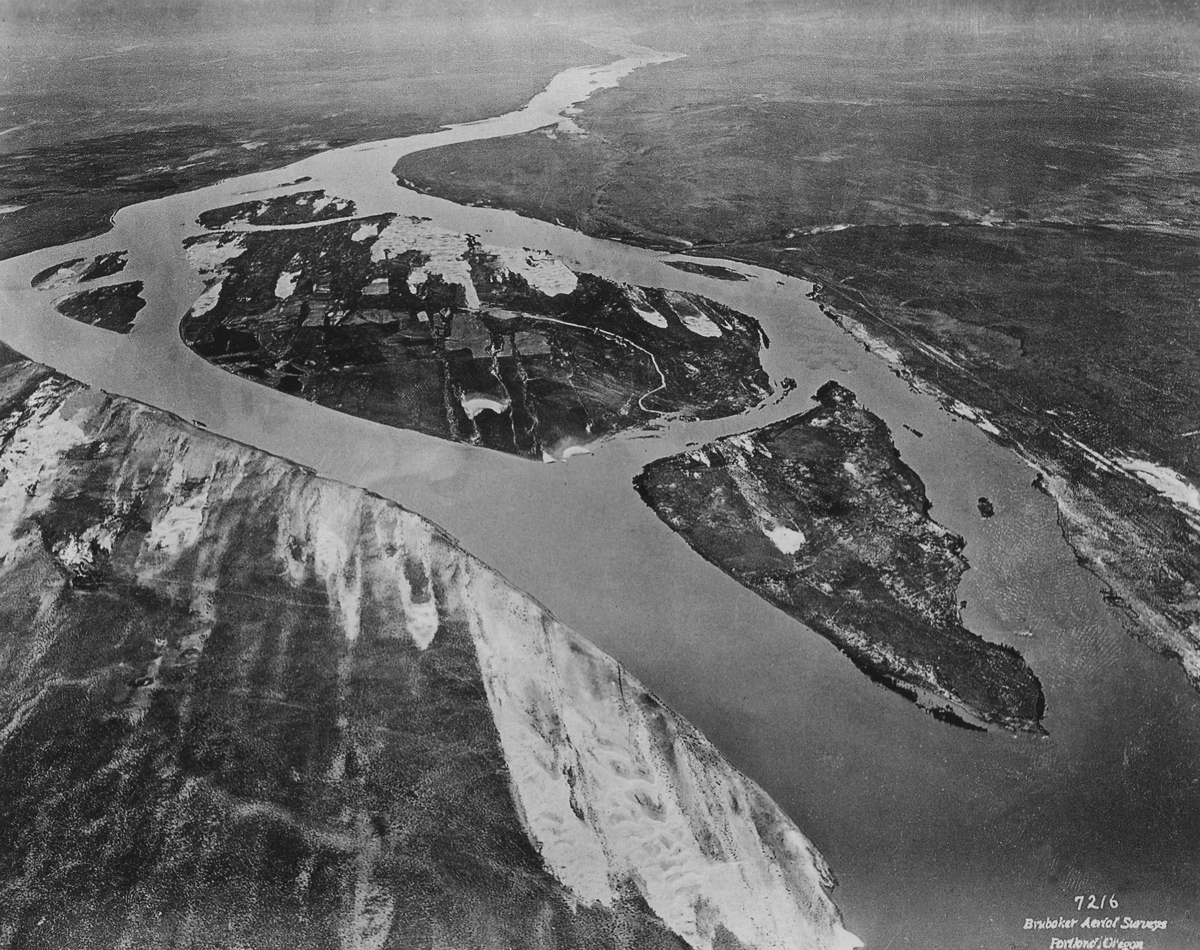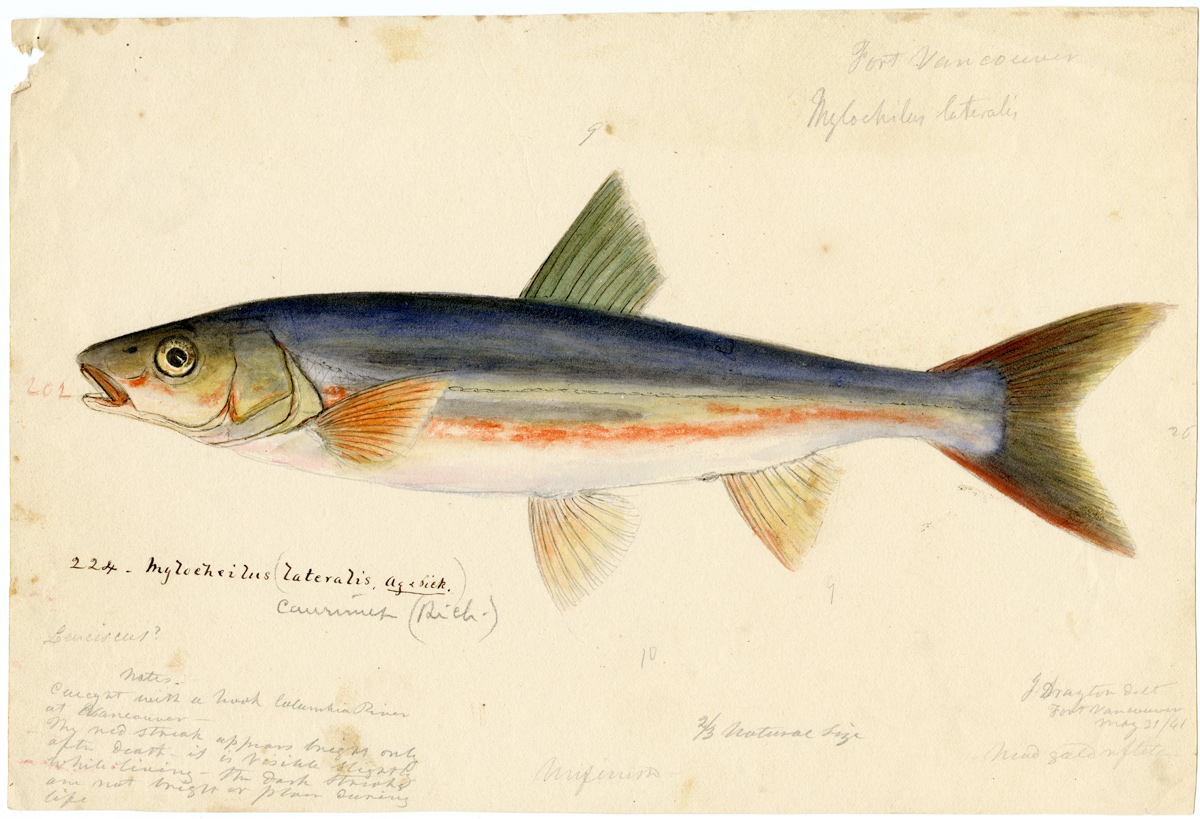The Corps of Northwestern Discovery continues along the north shore of the Columbia River reaching the low plains near present Plymouth, Washington. The trail is dusty and crowded with Indians. At evening camp, a young boy catches several Columbia River chub, a species new to science.
A Crowded March
by Yellowstone Public Radio[1]Originally aired weekdays by Yellowstone Public Radio during the Bicentennial observance of 2003-2006. Narrated by Hal Hansen. Scripts by Whit Hansen and Ed Jacobson. Produced by Leni Holliman. © … Continue reading
Low Lands Commence
This morning early we set forward and at the distance of three miles entered a low level plain country of great extent. here the river hills are low and receede a great distance from the river this low country commence on the S. side of the river about 10 miles below our encampment of last evening.
—Meriwether Lewis
Dining on Dog and Jerked Elk
at the distance of twelve miles we halted near a few willows which afforded us a sufficient quantity of fuel to cook our dinner which consisted of the ballance of the dogs we had purchased yesterday evening and some jirked Elk.
—Meriwether Lewis
Collecting Herbaceous Plants
these plains are covered with a variety of herbatious plants, grass, and three species of shrubs specimines of which I have preserved.
—Meriwether Lewis
Peamouth
Mylocheilus caurinus
Courtesy Smithsonian Institution RU 007186, Box 5, Folder 14.[2]Drawing of Cyprinoid observed near Fort Vancouver in 1841, drawn by Joseph Drayton for the United States Exploring Expedition, 1838-1842.
Peamouth (Columbia River Chub)
after we encamped a little Indian boy caught several chubbs with a bone in this form which he substituted for a hook. these fish were of about 9 inches long small head large abdomen, small where the tail joined the body, the tail wide long is proportion and forked.
—Meriwether Lewis
Weather Diary
State of weather at rise
Wind at rise
State of the weather at 4 P.M. Wind at 4 P.M. River fair after cloudy N W fair N E fallen 2 ½ in. the sweet willow has put fourth its leaves. the last evening was cloudy it continued to threaten rain all night but without raining. the wind blew hard all night. the air cold as it is invariably when it sets from the westerly quarter.—
—Meriwether Lewis[3]To assist the reader of this web page, the date column is not presented, the “State of the Columbia River” columns have been merged, and some abbreviations have been spelled out.
Experience the Lewis and Clark Trail
The Lewis and Clark Trail Experience—our sister site at lewisandclark.travel—connects the world to people and places on the Lewis and Clark Trail.
Plan a trip related to April 26, 1806:

Notes
| ↑1 | Originally aired weekdays by Yellowstone Public Radio during the Bicentennial observance of 2003-2006. Narrated by Hal Hansen. Scripts by Whit Hansen and Ed Jacobson. Produced by Leni Holliman. © 2003 by Yellowstone Public Radio. |
|---|---|
| ↑2 | Drawing of Cyprinoid observed near Fort Vancouver in 1841, drawn by Joseph Drayton for the United States Exploring Expedition, 1838-1842. |
| ↑3 | To assist the reader of this web page, the date column is not presented, the “State of the Columbia River” columns have been merged, and some abbreviations have been spelled out. |


